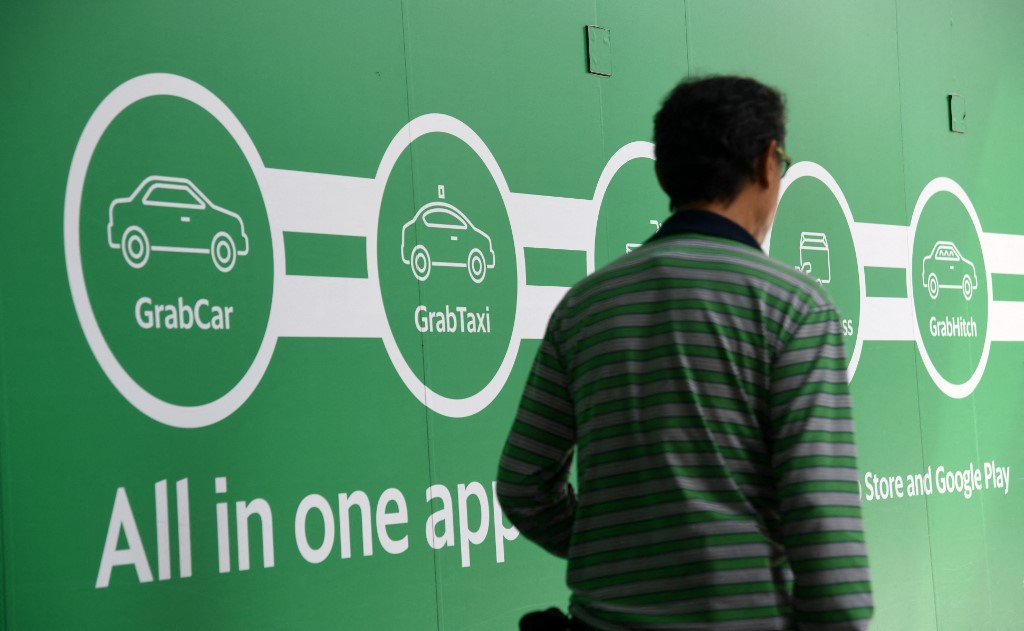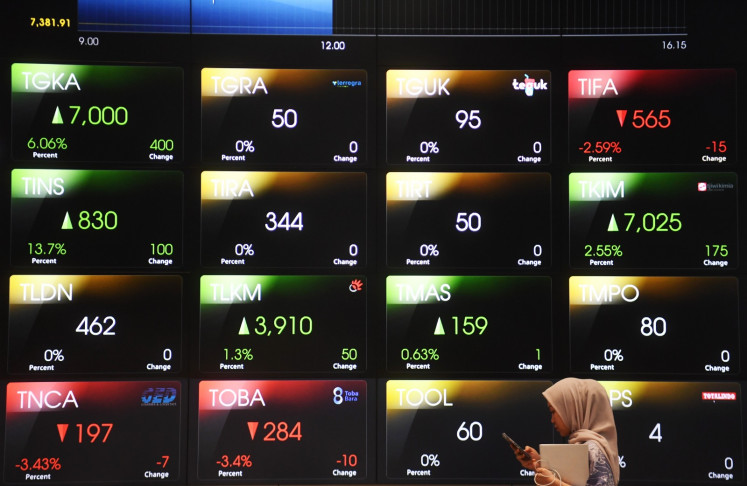Grab's Nasdaq debut to set tone for Southeast Asian listings
The backdoor listing on Nasdaq marks the high point for the nine-year-old Singapore company. The ride-hailing company made its debut on Nasdaq on Thursday.
Change Size
 A man walks past a Grab office in Singapore on June 13, 2018. (AFP/Roslan Rahman)
A man walks past a Grab office in Singapore on June 13, 2018. (AFP/Roslan Rahman)
G
rab, Southeast Asia's biggest ride-hailing and delivery firm, makes its market debut on Thursday after a record US$40 billion merger with a special purpose acquisition company (SPAC), in a listing that will set the tone for other regional offerings.
The backdoor listing on Nasdaq marks the high point for the nine-year-old Singapore company that began as a ride-hailing app and now operates across 400 cities in eight countries, offering food deliveries, payments, insurance and investment products.
"This listing will be a key focus for the market, especially given the potential for more aggressive competition going forward," said Angus Mackintosh, an analyst who publishes on Smartkarma research platform.
Grab's rivals, including regional internet firm Sea and Indonesia's GoTo Group, are also bulking up, with the region's internet economy forecast to double to $360 billion in gross merchandise volume by 2025.
Grab was founded by Anthony Tan, its chief executive, and Tan Hooi Ling, who developed the firm from an idea for a Harvard Business School venture competition in 2011.
CEO Tan, 39, expanded Grab into a regional operation with a range of services, after launching as a taxi app in Malaysia in 2012. It later moved its headquarters to Singapore.
"The beauty is that when you are a regional super app and any market that goes through a difficult time, we could have all the other countries support a very strong, resilient business," Tan said at Reuters Next.
Grab's listing brings a payday bonanza to early backers such as SoftBank Group Corp and Chinese ride-hailing giant Didi Chuxing, which invested as early as 2014.
They were later joined by others, such as Toyota Motor, Microsoft and Japanese bank MUFG. Uber became a Grab shareholder in 2018 after selling its Southeast Asian business to Grab following a five-year battle.
Analysts see scope for many players in Southeast Asia's fragmented food delivery and financial services markets, but the road to profitability can be a long one.
In September, Grab cut its full-year revenue forecasts, citing renewed uncertainty over pandemic curbs on movement.
Third-quarter revenue fell 9 percent and its adjusted loss before interest, taxes, depreciation, and amortization (EBITDA) widened 66 percent to $212 million. Grab aims to turn profitable on an earnings before interest, tax, depreciation and amortization (EBITDA) basis in 2023.
Grab raised $4.5 billion alongside the SPAC transaction, including $750 million from Silicon Valley tech investor Altimeter Capital Management in a deal in April.










